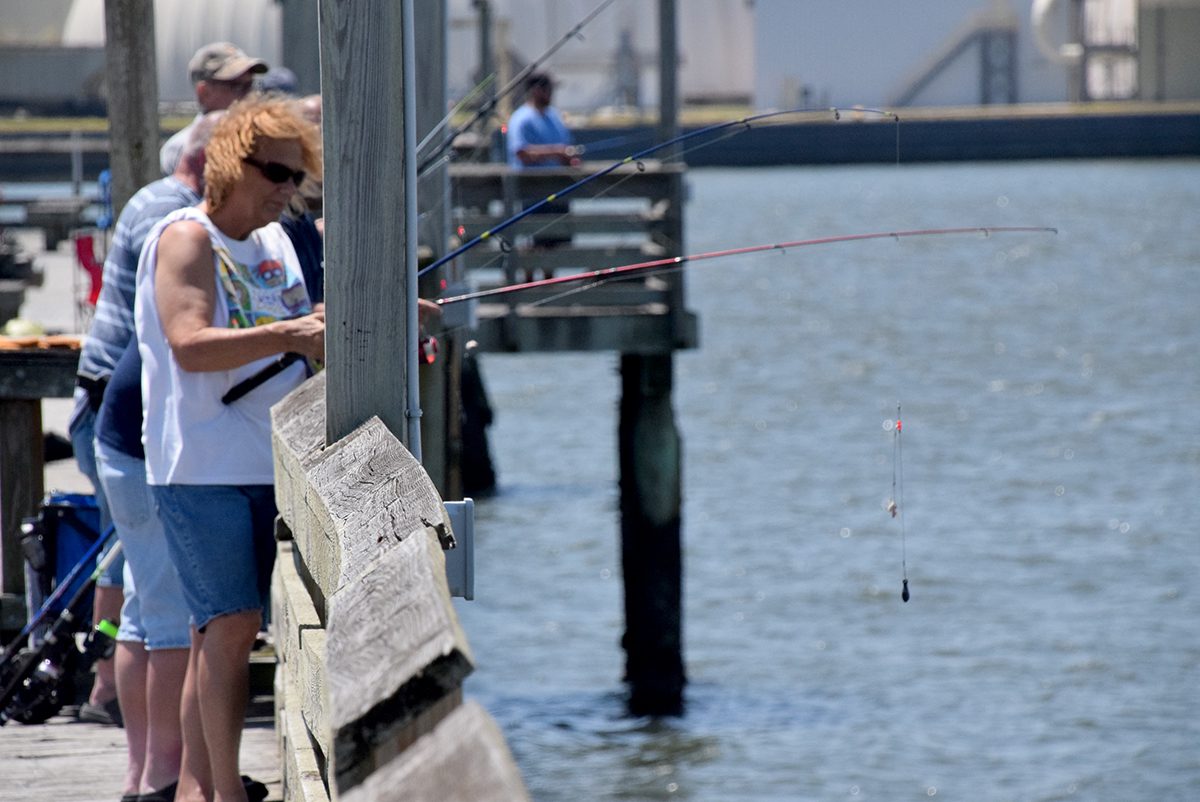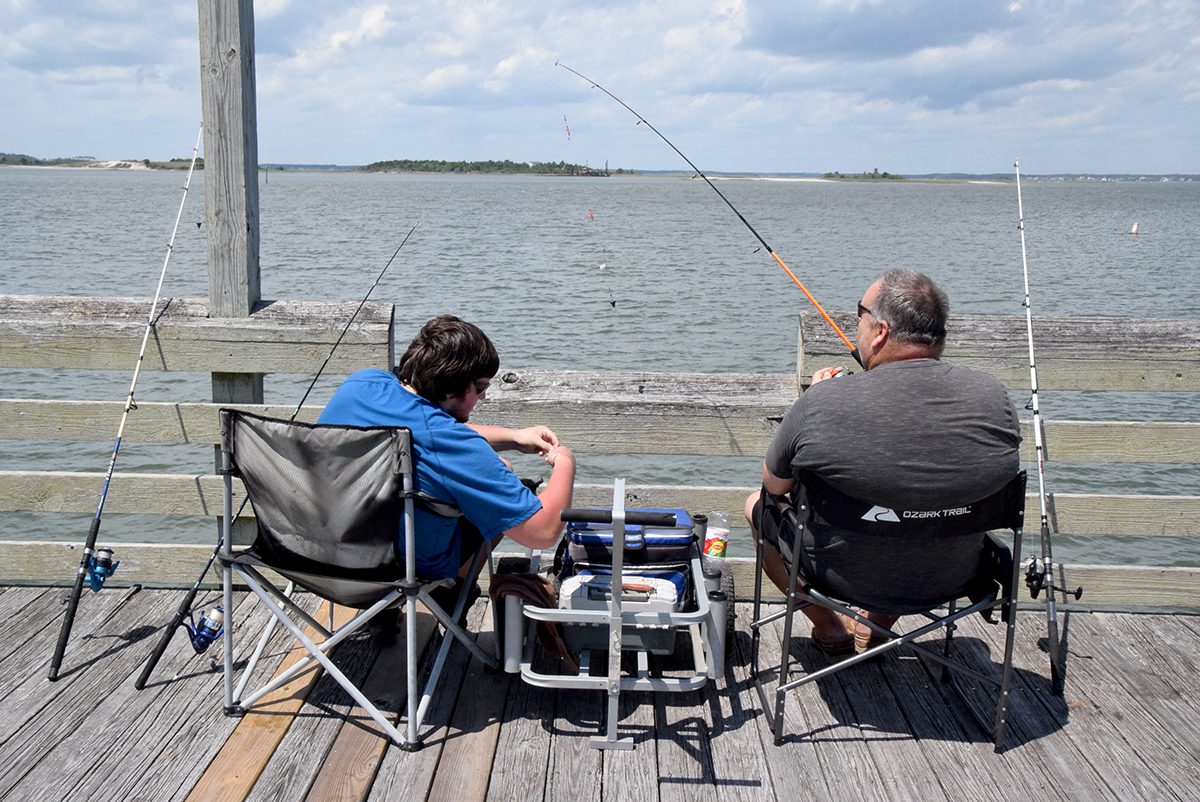
State fisheries officials are asking lawmakers for another year to roll out a new harvest reporting requirement for coastal recreational anglers and commercial fishermen.
“This will allow us more time to get the word out to the fishing public about the new law and to help them understand the importance of compliance,” North Carolina Division of Marine Fisheries Public Information Officer Patricia Smith said in an email earlier this week.
Supporter Spotlight
The reporting requirement is set to go into effect Dec. 1, after which time a fisher caught not complying with the law will receive a verbal warning.
Related: Anglers say reporting law puts burden on them, unenforceable
As it stands, full enforcement of the law, which will carry a $35 fine for each violation and the threat of license and permit suspensions for repeat offenders, is set to kick in Dec. 1, 2026. Chad Thomas, executive director of the North Carolina Marine & Estuary Foundation, the relatively new nonprofit that initiated a plan to get the harvest reporting requirement into law, said that the group supports the division’s request.
He said the idea behind the law was to bring together the two state agencies that have a history of conflict over their shared management of joint fishing waters, fill in gaps left by federal reporting surveys, and thrust North Carolina into the spotlight as a pioneer in coastal fish data management.
Under the law, coastal recreational anglers will be required to report harvests of five species: flounder, red drum, spotted seatrout (speckled trout), striped bass and weakfish (gray trout). Thomas said those are the most high-profile recreational fish on the coast.
Supporter Spotlight
The division and state Wildlife Resources Commission are accepting public comments on a set of proposed temporary rules the agencies presented during a hearing last week, one in which anglers questioned why the law was created and argued it puts an unfair burden on recreational fishers.
Commercial fishers will for the first time have to include on trip-ticket forms catch they do not sell to a dealer. Dealers submit trip-tickets each month to the state, which uses the information reported on the tickets as a means to help manage fisheries resources.
Thomas, a retired fisheries scientist who worked at the state wildlife agency for 30 years and is a member of the Atlantic States Marine Fisheries Commission, pointed out that the legislation the North Carolina General Assembly passed last year does not dictate what the division should do with the data that will be collected under the new reporting requirement.
“But the information that would be gained is extremely valuable,” he said.
The federal survey known as the Marine Recreational Information Program, or MRIP, fails to capture a solid statistical account of certain fisheries in some states, Thomas said.

The National Oceanic and Atmospheric Administration is looking at ways to improve its fishing effort survey. Last August, NOAA Fisheries released the results of a pilot study that suggested reporting in some fisheries and in some states was inflated by as much as 40%.
Data collected through a state reporting requirement will provide information that, over time, will allow fisheries officials to determine the percentage being reported for a species and allow them to follow trends in those species, Thomas said.
“So, if you’re seeing your red drum populations are going up, trending up by way of harvest, and then the federal data is showing something different than that, scientists have an opportunity to ground check both of those data sets,” he said. “If your data is trending up, that’s a good thing. If it starts to drop down, then that can recognize that perhaps another management action needs to happen. It’s a way to backcheck the data the division is already using without putting any undo expectations on the division to use.”
He likened the reporting system to that required of hunters, who must report seasonal kills of wild game including deer and bear to the state wildlife office.
“That’s the only way they can survey to see how many of those animals are harvested every year,” Thomas said. “Without that information, how else do they sample? That’s the idea here behind just the five recreational fish. Those five support a billion-dollar fishery on our coast.”
Smith with the division said in her email that the division does not have an economic impact estimate for the five species that have to be reported.
“Once we move to the permanent rulemaking process, a fiscal analysis will be required,” she said.
Neither the division nor Wildlife Resources requested the new reporting program, which comes with a one-time $5 million allocation from the General Assembly.
Some anglers who spoke during last week’s public hearing argued the new reporting law will simply not be enforceable.
The division’s Marine Patrol and the commission’s law enforcement division have a combined force of a little more than 100 enforcement personnel charged with overseeing an area that includes more than 300 miles of ocean shoreline, nearly two dozen inlets and thousands or estuarine coastlines.
House Bill 949, introduced in the House May 1, aims to inject $600,000 in recurring funds and a one-time $10,000 allocation to the Division of Marine Fisheries for five full-time Marine Patrol officer positions.
That’s not enough, Thomas said, but it’s a start.
“Will (officers) be able to capture everything? Absolutely not,” he said.
Still, he argued, most recreational license holders are going to “do what’s right” and adhere to the rules. And, he said, enforcement officers can ramp up patrols during seasons, which, like that of flounder season, have a relatively small window.
Thomas also addressed concerns that the new reporting requirement will not include fish anglers catch and release.
“Harvest is the only thing that you could enforce because how many I caught and how long I went out there is nothing that I can provide proof of if I’m stopped and checked,” he said. “I think down the line the division, if they find the data to be necessary, then they can add those fields.”
Thomas said additional funds will be needed to keep the reporting program going.
“That’s part of what our group wants to do down the road with the state,” he said. “We want to see this program be successful. North Carolina’s trip ticket information is some of the best in the country. Why not have something like that on the recreational side?”







